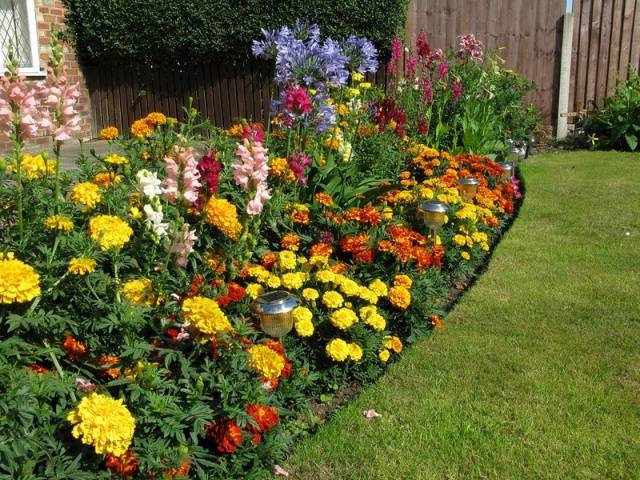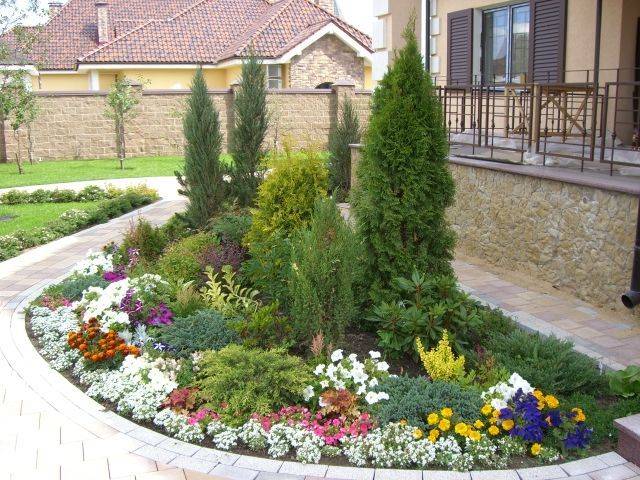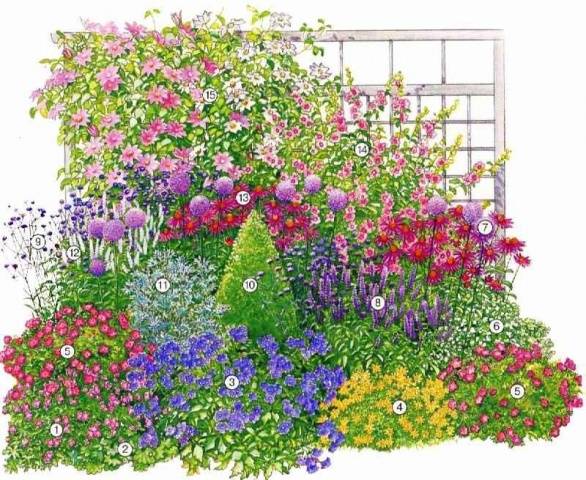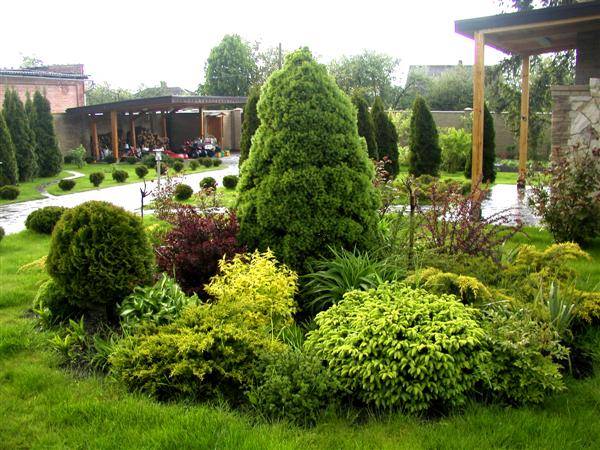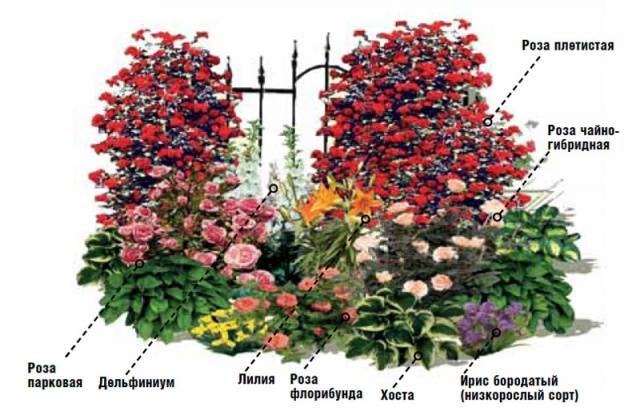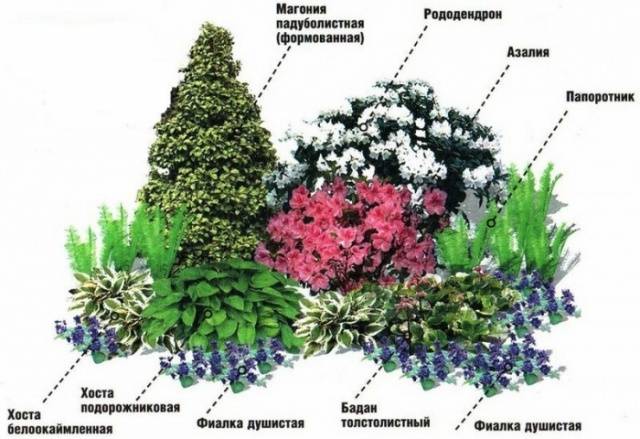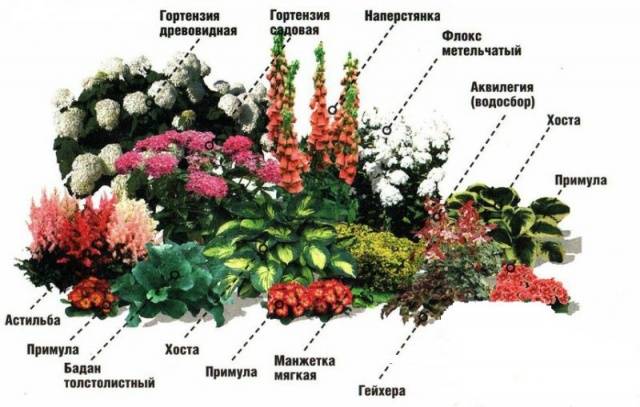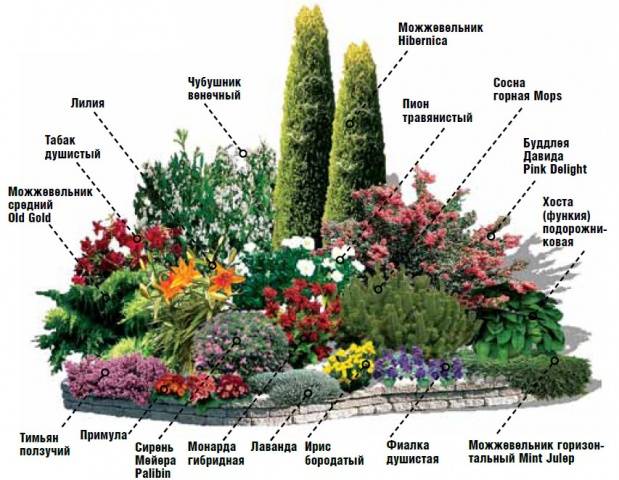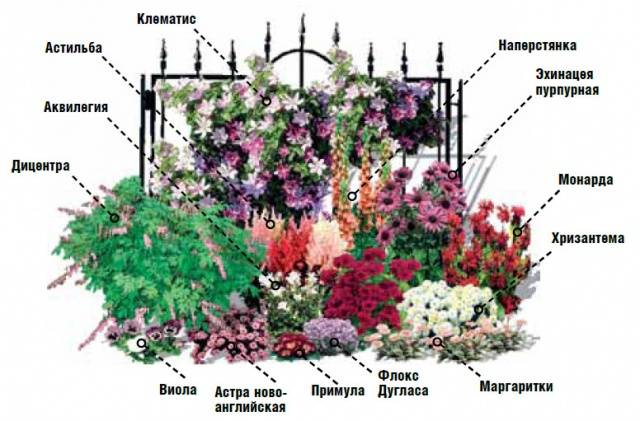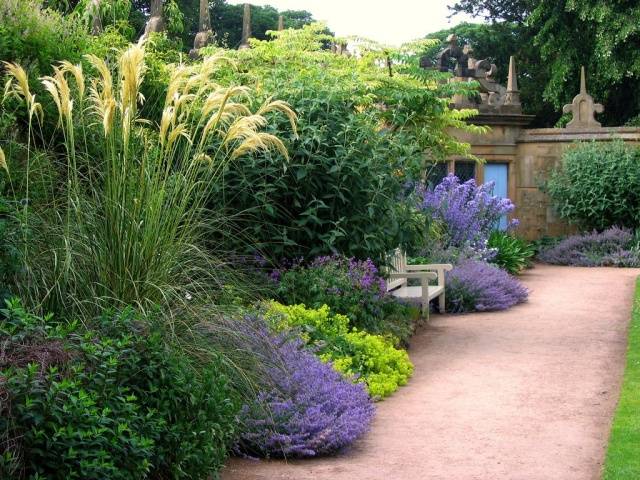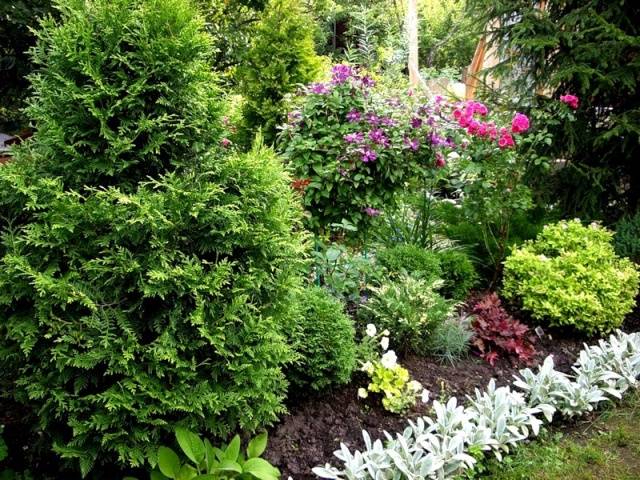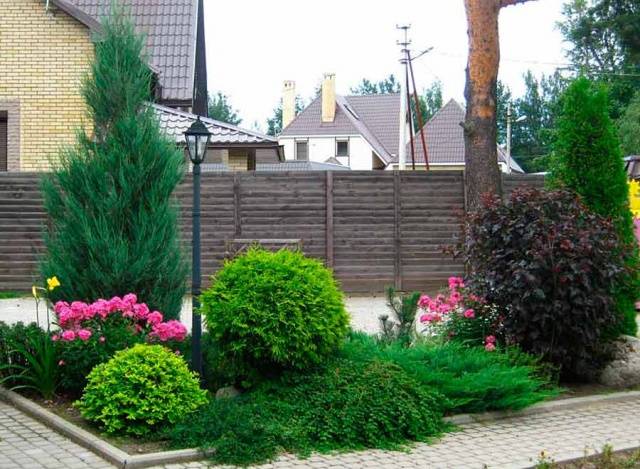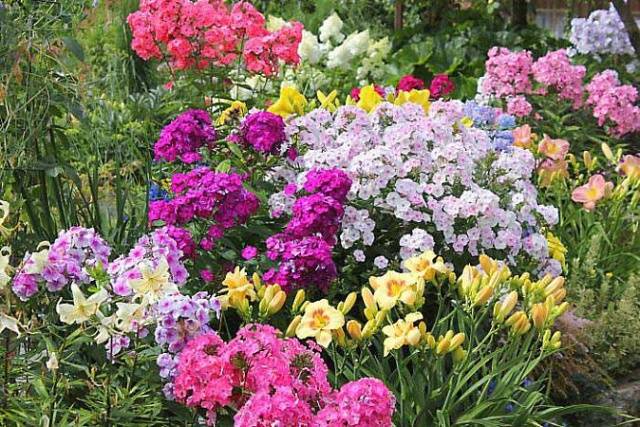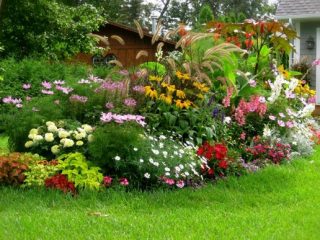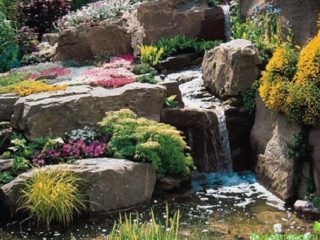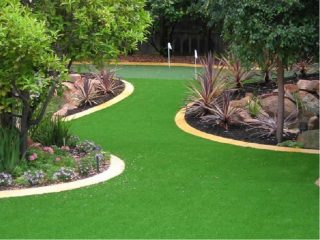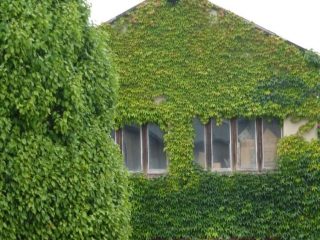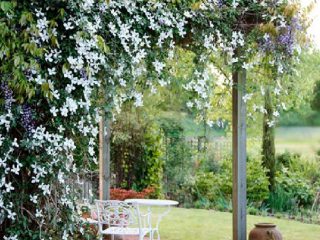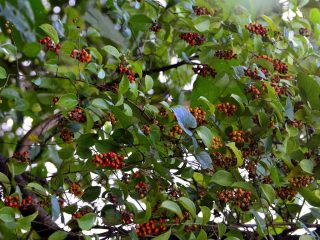Content
Until recently, our citizens presented dachas exclusively as a place for growing potatoes and cucumbers. Everything has changed today. They try to decorate the personal plot and create on it not only beds, but also a place for rest. What place on the site does it take today mixborder, and how to do it yourself?
What is a mixborder
Even if you have never heard this name, you probably saw this landing in the photos or on the sites of friends.
A mixborder is nothing more than a flower garden of several plants, combined according to a certain principle. From English, this name is translated as "mix border". Very often on the Internet you can find ready-made schemes for such flower beds. They will decorate any site if you choose the right combination of plants.
A mixborder is a flowerbed that is deliberately complex, it combines:
- shrubs;
- annuals;
- perennial flowers;
- trees;
- herbs.
It is not only the color scale that matters, but also the size of the plants, their species and flowering periods. Let's figure out how to make a mixborder with our own hands so that the work does not turn into a routine.
Where to place the mixborder
Some summer residents and flower growers believe that choosing a place is the easiest thing at the stage of forming a complex flower bed. This is not true. The process begins not with buying seedlings, but with drawing up a detailed layout of both the mixborder itself and the plants for it.
When choosing a place, the following nuances are important:
- where I would like to plant such a flower bed;
- whether the selected area is shaded and whether it is located under the scorching sun;
- what kind plants perfectly tolerate partial shade (shade or sun depending on the choice);
- is there enough space in the selected area for tall and spreading trees and shrubs.
With these questions in mind, it should be easy to move on to the next step: drawing up the diagram on paper. A complex flower bed can be located:
- along the tracks;
- in the middle of the lawn;
- on the outer border of the site.
When choosing a place, you need to take into account that a mixborder is created to decorate the site, it must be in sight. The shape can be any, but most often shapeless flower beds are preferred. The volume of the mixborder also does not matter. If it is close to home, do not use melliferous plantsotherwise they will attract wasps and bees to the windows.
Selection of plants for a flower garden
The next step is to select plants and draw up a schematic image. When choosing plants, you need to adhere to one principle: they will not bloom at the same time for a long time, therefore it is better to plant them so that they smoothly replace each other. A flowerbed of continuous flowering is the best decoration for a personal plot.
The design of a flower bed is based on the fact that low plants are brought to the fore (their height is no more than 40 centimeters), medium-sized plants are planted behind them (no more than 60 centimeters), tall ones (one meter and above) are pushed into the background. Not only shrubs and trees can be used as tall plants, but also climbing plants, for example, maiden grapes or clematis.
Which plants should not be used in a mixborder? There are also rules on this score:
- plants are selected according to the composition of the soil, moisture and wind resistance;
- plants with rapidly growing rhizomes cannot be used in the flower bed;
- the place for each plant should be selected for its benefit;
- you cannot combine plants with complex care (by abundantly watering one shrub, you can cause irreparable harm to the neighboring one);
- do not ignore the greenery, the foliage will add splendor to the flower bed.
Only at first glance it seems that the plants in the mixborder are arranged chaotically. In fact, the schemes of mixborders from perennials and annuals are carefully verified. The selected plants are similar to each other in terms of care requirements.
When choosing a scheme, be sure to give each plant as much space as it needs, otherwise you risk losing part of the plantings in the first year. If at the same time there are voids that are visible to the eye, they can be temporarily filled with annuals. When drawing up a diagram, pay attention to the color combinations. The flower bed should simultaneously stand out on the site and be combined with it.
In winter, the mixborder from conifers will not lose its appearance. It is best to use dwarf varieties for such a flower bed, they are perfectly complemented by plants with bright glossy leaves, for example, rhododendron. Caring for him is simple, and the flowering is lush.
Ready-made schemes
We present to the readers' attention several ready-made mixborder schemes for acquaintance. They can be used in whole or in part.
Please note that annuals are a temporary, but striking addition to the flower garden; every year, new plants can be planted in their place or the same ones can be purchased. Green ferns, hosts, heucheras look spectacular in the flower garden.
When planning a large flower garden, you need to foresee a small path in advance to make maintenance easier.
The main types of mixborders
Consider the main types of mixborders that are popular today. The device of each of them may initially seem complicated, but it is not. Having studied the material in detail, you can get down to business on your own.
In english style
It is believed that in landscape design you can fantasize as you like. English-style mixborders will provide every florist with such an opportunity. They consist of both garden plants, familiar to our eyes, and of meadow plants with a predominance of the latter, creating an atmosphere of closeness to nature on the site.
Verbena, rosemary, wormwood, bell, primrose, chamomile, sedum and, of course, park rose will be of great importance in the construction of such a flower bed. The color scheme of roses is selected individually, they delight the eye with their flowering all year round. Needles and other greens are of great importance, which must be included in the drawing. The main colors here will be green, pink, white and blue.
A landscape project in the English style is presented in the video:
On the shady side of the lot
It is not possible to create a flower garden from plants that love the sun in all regions. What about those flower growers who have shaded areas on the site? Create a bright flower garden from shade-loving plants.
In this case, you need to pay attention to plants such as Lawson's cypress, some types of spruce, yew, juniper, adenium, barberry, many varieties of microbiota, rhododendrons, violets, tiarella. The main flowers of the flower bed will be green, brick, red, pink and white.
Seasonal
This type of mixborder is suitable for those who love variety and do not tolerate consistency. It is based on the principle of planting plants that bloom for no more than 1-2 years, and then are replaced by others. Summer residents who love the annual reorganization of the garden are more and more common.
In this case, you need to pay attention to the following types of plants: woodlands, crocuses, chionodoxes, which will bloom in the initial period of spring. Then the hyacinths will rise tulips and daffodils... Forget-me-not, daisy, primrose, violet will perfectly complement the flower garden. Once all of them have faded, they can be removed by replacing them with new plants. You can consider dahlias, marigolds, perennial sage, begonias.
As for color solutions, here the flight of imagination is completely unlimited. Moreover, it is this mixborder that will become the brightest.
Creating a mixborder
So, having received a ready-made scheme from the Internet or creating it with your own hands, you can get to work. It is divided into several stages, the sequence must be followed.
- stage 1: selection of plants and their purchase;
- stage 2: planting a "skeleton", which means undersized trees and shrubs;
- stage 3: planting of perennial plants;
- stage 4: replanting annuals and bulbs.
Let's analyze each of the stages in more detail. Everyone can create a mixborder with their own hands.
When choosing plants, pay attention to their appearance. They must be healthy. Do not stop looking only at flowers, mixborders with decorative conifers look great. Shrubs are also good. Pay attention to thuja, junipers, willows, viburnum bushes, spruce, yew, hydrangea, which will delight the eye with flowers for a long time.
"Skeletal" plants are planted at a short distance from each other, they should look organic. Their task is to create the height and outline of the back of the flower bed. Be guided by the fact that shrubs and undersized trees will soon grow. Many of them can be corrected with a haircut, but there are some that are not recommended to be cut, which means that it will be necessary to leave room for growth. As flowering shrubs, you can use: Meyer's lilac, mock orange, spirea, magnolia, elderberry, derain, hibiscus.
Moving on to the third stage, you shouldn't forget about the tiered principle. The perennial mixborders, the photos of which are presented above, were compiled on the condition that the background is much higher than average. You can fill the flower garden with herbs. The most striking look is sedge, ochke, feather grass. You can also pay attention to wormwood, geranium, phlox and tunbergia.
As for annuals and bulbs, they will give the flower garden a unique charm. The scheme should not include those bulbous that require annual digging. Muscari, crocuses and redwoods are best suited as them, they will be replaced a little later by tulips, primroses and daffodils. Annuals are also planted in small groups to create tiers and a riot of colors.
A quick guide to arranging a mixborder is presented in the video:
Shrub mixborder and perennials, generously diluted with annuals and bulbs, will adorn any personal plot for many years. Once you've created your masterpiece, you will enjoy it for years to come!
